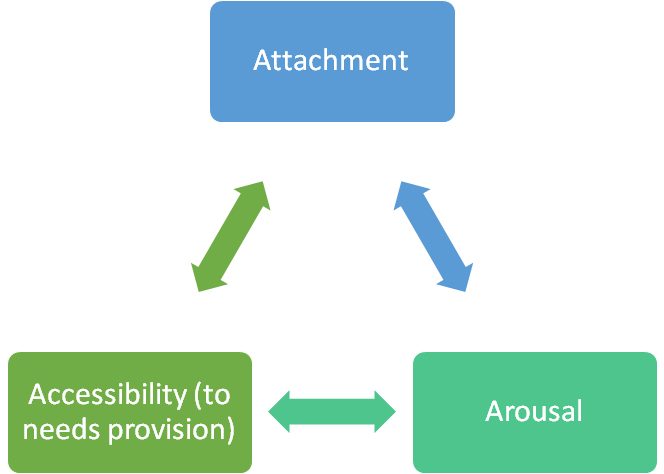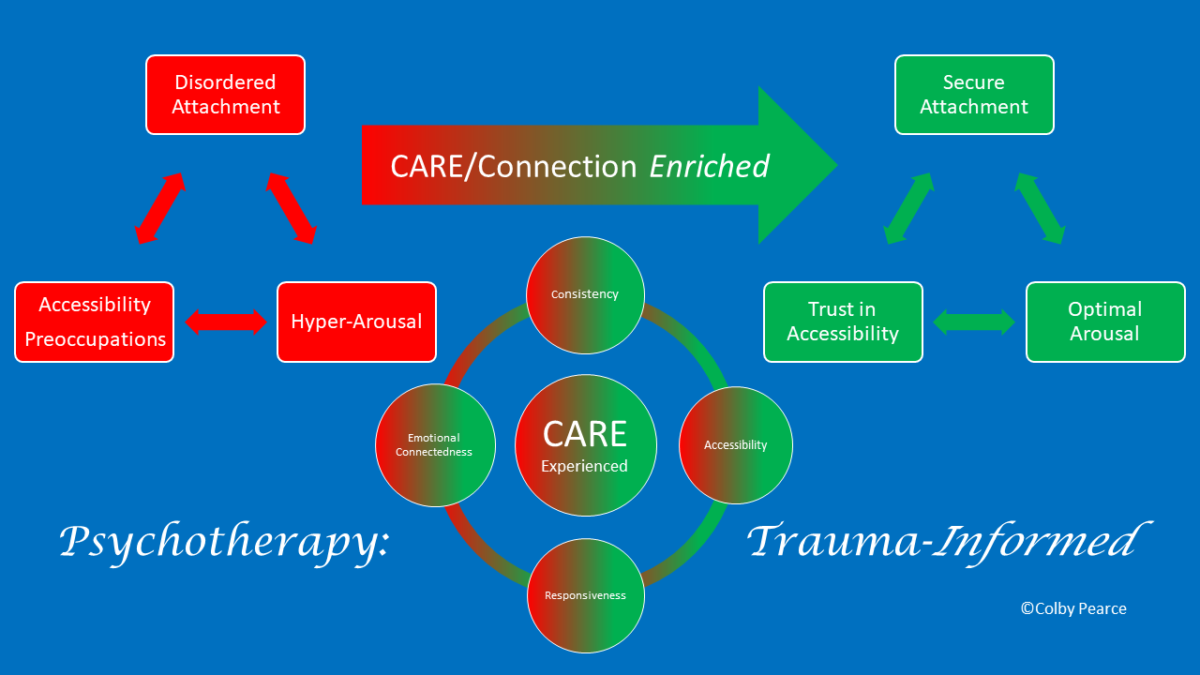Psychology is a broad term that covers the science of human emotions, behaviours, learning, and development.
Psychotherapy involves the application of psychological theories and methods to the solution of psychological issues.
There are diverse psychological theories and methods that are available to psychotherapists. In usual circumstances, these theories and methods are drawn from scientific enquiry into psychology, and associated practice endeavours.
Secure Start Principal Clinical Psychologist, Colby Pearce, draws heavily from psychological theories relating to child development, learning, and central nervous system functioning in understanding and developing solutions to common issues children and young people who engage with him present with. The main theories he draws on are:
- Attachment Theory;
- Learning Theory; and
- The psychobiology of fear-based behaviour activation systems (‘Anxiety Theory’).
These theories are encapsulated in the Triple-A Model[i], of which Colby is the author and which is a central element in his writing, programs, and approach to psychotherapy:

The Triple-A Model represents psychological factors that explain outcomes for children and young people, in terms of their development, wellbeing, and approach to life and relationships. In A Short Introduction to Attachment and Attachment Disorder (2nd Ed.)[ii] Colby explains how outcomes on these factors, and the interaction between them, are heavily influenced by the care children and young people receive during the developmental period, where care can be represented as:
- Consistency;
- Accessibility;
- Responsiveness;
- Emotional Connectedness; or
- CARE, for short.
In his practice with children and families, Colby’s focus is enriching the CARE children and young people experience; in the home, at school, and in the consulting room. Colby implements methods to enrich experienced CARE in the consulting room and offers practical information and strategies for enriching CARE in the home and education settings. We all respond best to consistency, and outcomes for psychological endeavour with children and young people are heavily influenced by achieving consistency in experienced CARE across settings.
In the consulting room, Colby’s focus is on delivering a high ‘dose’ of CARE. The relationship between Colby and the children and young people is the medium through which CARE is delivered, as well as the methods used during psychotherapy sessions. It is Colby’s intent for children and young people to consistently experience him as a fun and friendly adult who facilitates positive beliefs about themselves, others, and their world (Attachment), who supports their wellbeing (Arousal), and who promotes functional learning about how adults can be relied upon for needs provision (Accessibility). In turn, this endeavour is extended to the home and education settings through the implementation of Colby’s therapeutic programs; notably the Triple-A Model of Therapeutic Care, and the CARE Curriculum. This helps extend of the dose of CARE delivered in psychotherapy sessions.
Relational connection is a powerful source of feelings of wellbeing and supports a positive approach to life and relationships among children and young people. Being relationship-focused, in Colby’s approach to psychotherapy there is a primary emphasis on supporting experiences of relational connection for children and young people. This means that there is not always a set agenda of topics to be discussed but, rather, Colby is ‘led’ by the experience and interests of the child or young person. It is not so much what is discussed during consultations that is important, but how it is discussed, and what is the child or young person’s experience of the discussion. This is where CARE comes into it. Consistently, Colby will endeavour to support experiences that he is present and engaged, physically, emotionally, and cognitively, that he understands the experience of the child or young person, and that he can be relied upon to address certain needs. Similarly, activities supported or introduced by Colby are a vehicle by which Colby facilitates positive experiences of CARE, in the pursuit of positive beliefs about self, others, and the world, optimal arousal for performance in life and wellbeing, and functional learning about accessibility to needs provision.
In short, in Colby’s approach to psychotherapy there is an emphasis on the ‘process’ by which relational connection and the delivery of CARE is achieved. This differs to other approaches to psychotherapy, where there is a focus on teaching thinking skills or behaviours that address specific psychological issues. In Colby’s experience, the implementation of these ‘skills’ beyond the consulting room is heavily dependent on the internal motivation children and young people have to better their circumstances. Where this is lacking, Colby’s approach nurtures the motivation to apply skills and strategies that address specific psychological issues. In this sense, Colby’s approach is foundational, or developmental. It fills in the gaps for children and young people who, for one reason of another, have experienced some challenges and are in need of a little extra CARE.
[i] Pearce, C.M. (2010). An Integration of Theory, Science and Reflective Clinical Practice in the Care and Management of Attachment-Disordered Children – A Triple A Approach. Educational and Child Psychology (Special Issue on Attachment), 27 (3): 73-86
[ii] Pearce, C. A Short Introduction to Attachment and Attachment Disorder (2nd Ed.). London. Jessica Kingsley Publishers, 2016

